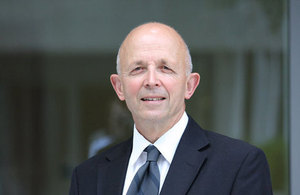Far from the £350m weekly bonus claimed by the Leave campaign, Brexit is actually costing the NHS a fortune in higher costs quite apart from the broader problems it has created such as the departure of many nurses and other staff with EU passports.
Analysis of the Health Department’s accounts by the doctor’s union, the British Medical Association has revealed that £155m has already been added to its expenses as a result of the tumble in the pound after last year’s referendum vote in favour of Brexit.
The BMA dismissed as a fantasy the claim by Brexiteers that leaving the EU would free up £350m a week of public spending that instead could be devoted to the NHS. When the BMA contacted the Department of Health to ask about the £350m figure officials avoided commenting and said the association should instead contact the office of Boris Johnson, the claim’s most vocal spokesman.
Import Costs To Increase?
Chris Robson, a former procurement director at Cambridge University Hospitals, told the Health Service Journal after the Brexit referendum that at least half of the products used in the NHS come from outside the UK with a large proportion manufactured in Europe, Switzerland, the US and the Far East.
They can be anything from drugs to prosthetic limbs or the thousands of gloves used every day in the service.
With the buying power of the pound having shrunk after last year’s Brexit vote the NHS is facing higher prices as suppliers lift their prices in pounds so they can maintain the income they receive in foreign currency, so further rises are almost certain.
“The ongoing and sustained deterioration in exchange rates versus key currencies is very likely to lead to claims from suppliers for an increase in pricing over the longer term,” Robson said. “We estimate that the sustained deterioration in exchange rates could generate claims for price increases worth up to £900m per year.”
Robson told HSJ that there are ways the NHS can manage that risk by developing its role as a major buyer and monitoring flexibly where to buy products and in what currency.
Boris’s Blunder
 In his controversial Telegraph column on September 15 the Foreign Secretary Boris Johnson tried to revive and defend his discredited pledge from the Brexit referendum campaign that leaving the EU would save Britain a net £350m a week which supposedly goes from the UK to Brussels and could instead be spent on the NHS.
In his controversial Telegraph column on September 15 the Foreign Secretary Boris Johnson tried to revive and defend his discredited pledge from the Brexit referendum campaign that leaving the EU would save Britain a net £350m a week which supposedly goes from the UK to Brussels and could instead be spent on the NHS.
Independent analysts long ago dismissed the £350m claim as bogus because Britain has simply never paid anything like that figure to the EU, and whatever savings the UK does make from leaving the EU have already been pledged by the Government to replace lost EU funds such as farm subsidies and research grants.
But Johnson repeated the £350m claim and said it would be a “fine thing” to put a “lot of” the financial savings from leaving the EU towards the NHS. In an unprecedented written response Sir David Norgrove (left), chairman of the UK Statistics Authority, said he was “surprised and disappointed” that Johnson had repeated the £350m figure since it ignored key considerations such as the UK’s EU “rebate” which lowers its contributions to Brussels to well below £350m, and the cost of EU services that the UK will have to replace.
Norgrove also pointed to the European Commission’s estimate that the average UK contribution is more like £135m a week, just over a third of the Leave campaign’s figure.
Norgrove’s predecessor Sir Andrew Dilnot had warned before the referendum that the £350m claim was “potentially misleading” and now Chaand Nagpaul, the BMA’s council chair, said it was “astonishing” that a senior Cabinet Secretary “sees fit to repeat the myth that Brexit could free up £350m a week for public finances.”
The sad truth of that now widely-exposed fiction is that even the Vote Leave campaign director Dominic Cummings has suggested that it was pivotal in convincing the UK to back Brexit. “Would we have won without ‘£350m for the NHS’?” he has asked. “All our research and the close result strongly suggests no.”
by Stewart Vickers
The post NHS: Costly Reality of Brexit’s Bogus £350m appeared first on Felix Magazine.
NHS: Costly Reality of Brexit’s Bogus £350m posted first on http://www.felixmagazine.com/
No comments:
Post a Comment